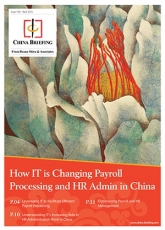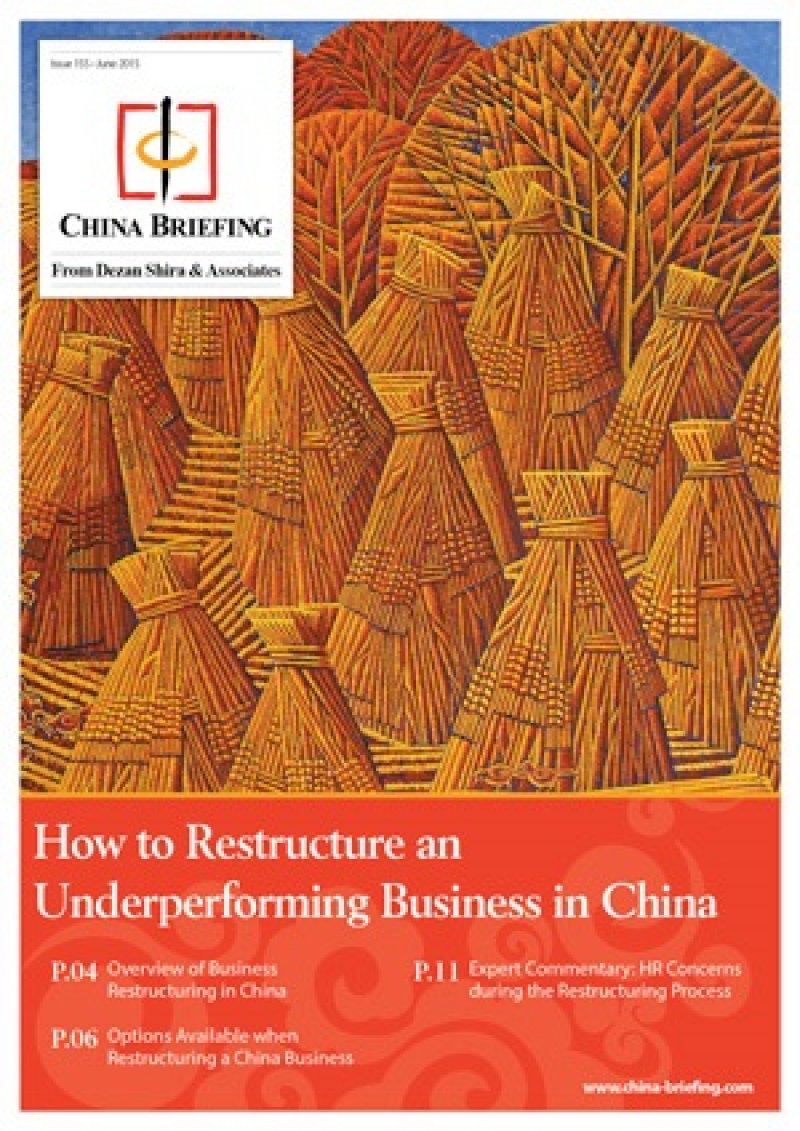Internet Censorship and China’s New Online Publication Law
 By Dezan Shira & Associates
By Dezan Shira & Associates
Editor: Jake Liddle
China’s new Online Publishing Service Administrative Rules became effective on March 10, 2016. The law, which aims to “regulate the criteria of and promote the healthy development of internet publishing services”, has already curbed the online activity of several Western MNCs – including Apple’s iTunes and Disney’s DisneyLife – but what wider implications do the rules have for internet censorship in China?
The new online publishing rules form part of President Xi Jinping’s broader efforts to utilize China’s so called ‘Great Firewall’ to control the flow of online information. In a meeting held in April, China’s State news agency Xinhua quoted Xi as saying: “China must improve management of cyberspace and work to ensure high-quality content with positive voices creating a healthy, positive culture that is a force for good”. With 25 percent of internet sites currently blocked in China compared to the 14 percent before Xi came into power, it is evident that the country’s new approach is effective.
Definition and Scope of China’s Online Publications Law
The law defines internet publications as edited, produced or processed digital works that are provided to the public through information networks, primarily those including digital works containing text, pictures, maps, games, animation and audio etc., contents identical with books, newspapers and any other such audiovisual products that have already been published, and any other type of content recognized by the State Administration of Press, Publication, Radio, Film and Television (SAPPRFT).
As with many items of legislation produced by the state, the online publications law is somewhat ambiguous. Its definition of internet publications and services is left open to be interpreted as any variety of content posted online. Therefore, in practice, any entity posting content online without the license is at risk of having its website taken down.
Supervision
The law grants powers of examination, approval, supervision and administration of internet publishing services to the SAPPRFT and the Ministry of Industry and Information Technology (MIIT), allowing them to inspect and detain articles and business premises in contravention of the law. Relevant authorities are obliged to conduct the following activities:
- Supervise internet publishing service providers and their publications, as well as punish violations of the law and report to the publishing authority at a higher level;
- Administer the employees of internet publishing, and organize regular professional training and evaluation; and
- Cooperate with the publishing authority at a higher level, coordinate with the relevant authorities, and give guidance to publishing authorities at lower levels.
![]() RELATED: Information Technology-based Solutions
RELATED: Information Technology-based Solutions
Requirements and Application
The application process for an entity to become lawfully able to provide internet publishing services is lengthy. There are many requirements to satisfy before being able to apply for the Publishing Service License, which the law stipulates must be obtained in order to engage in internet publishing services. They are:
- Have a defined domain name, smart device app or other publication platform in which to host internet publishing services;
- Have a defined scope of internet publishing services;
- Possess the technology and equipment necessary for internet publishing services with relevant servers and storage devices located within the territory of the People’s Republic of China (Not including Hong Kong, Macau or Taiwan) ;
- Have a unique name and articles of association different from other publication entities to engage in internet publishing services;
- Have a legal representative and a person chiefly in charge of compliance with national regulations. The legal representative must be a Chinese citizen with full legal capacity. At least either the legal representative or the person chiefly in charge must have a middle or higher level professional qualification relevant to publishing;
- Have at least eight full-time editing and publishing staff who hold publishing and relevant professional qualification certificates recognized by the State Administration of Press, Publication, Radio, Film and Television, of whom at least three must hold intermediate or higher level qualification certificates;
- Have a content review system necessary for providing internet publishing services;
- Have a fixed business premises.
An entity can apply for the license at a local provincial level publishing authority. The application will be forwarded to the SAPPRFT, who will then make a decision of approval within 60 days.
The Internet Publishing Service License is valid for a period of five years. If an entity plans to continue internet publishing services after expiration, it can apply again within 60 days before expiration. Approval is at the discretion of the publishing authority.
Restrictions
The law stipulates that an internet publication cannot include any content that opposes the principles of the constitution, threatens national unity, sovereignty or territorial integrity or security, divulges state secrets, damages the reputation or interests of the state, incites ethnic hostility or discrimination, endangers social morals or ethnic cultural traditions, advocates heresy or feudal superstition, disseminates rumors, disturbs social order and stability, disseminates obscenity, pornography, gambling, violence, or incites crime or insults others or infringes on their legal rights and interests.
To publish material involving potentially sensitive topics, record-filing has to be undertaken in accordance with the major topic registration provisions of the SAPPRFT. Topics that have not been filed for record or approved may not be published. In addition, Sino-foreign equity joint ventures, Sino-foreign cooperative joint ventures and foreign entities are not permitted to engage in internet publishing services.
Key Takeaways
China’s new online publications law reinforces the previous exclusion of foreign investment into the country’s online publications industry. It is therefore of utmost importance for investors looking to engage in the industry to be aware of the correct procedure for application, and the risks involved in violating the strict provisions. The ambiguity of the law places any sort of knowledge based business that publishes content online in the firing line of the law’s penalties.
|
Asia Briefing Ltd. is a subsidiary of Dezan Shira & Associates. Dezan Shira is a specialist foreign direct investment practice, providing corporate establishment, business advisory, tax advisory and compliance, accounting, payroll, due diligence and financial review services to multinationals investing in China, Hong Kong, India, Vietnam, Singapore and the rest of ASEAN. For further information, please email china@dezshira.com or visit www.dezshira.com. Stay up to date with the latest business and investment trends in Asia by subscribing to our complimentary update service featuring news, commentary and regulatory insight. |

 How IT is Changing Payroll Processing and HR Admin in China
How IT is Changing Payroll Processing and HR Admin in China
In this edition of China Briefing magazine, we examine how foreign multinationals can take better advantage of IT in the gathering, storing, and analyzing of HR information in China. We look at how IT can help foreign companies navigate China’s nuanced payroll processing regulations, explain how software platforms are becoming essential for HR, and finally answer questions on the efficacy of outsourcing payroll and HR in China.
 Internet Challenges & Solutions When Doing Business in China
Internet Challenges & Solutions When Doing Business in China
In this special edition of China Briefing magazine, we highlight how and why foreign companies will be negatively affected by China’s internet, and provide methods to help solve these problems. We discuss ISP selection, internet connection types, CDNs and VPNs, and internal control systems. Finally, we examine the importance of network security in China and how it can help augment a company’s internet connection.
How to Restructure an Underperforming Business in China
In this issue of China Briefing magazine, we explore the options that are available to foreign firms looking to restructure or close their operations in China. We begin with an overview of what restructuring an unprofitable business in China might entail, and then take an in-depth look at the way in which a foreign company can go about the restructuring process. Finally, we highlight some of the key HR concerns associated with restructuring a China business.
- Previous Article Transfer Pricing in China 2016 – New Publication from China Briefing
- Next Article Changing Course: e-Commerce and its Impact on the Automotive Aftermarket










